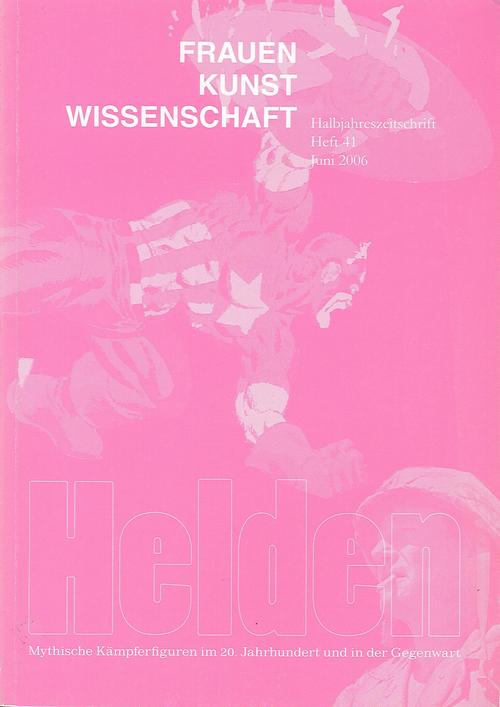Black Hawk Down - "Global Player" im freien Flug? - Von der Konstruktion filmischer Helden in Zeiten neuer Kriege
DOI:
https://doi.org/10.57871/fkw4120061035Abstract
Patricia Mühr
Black Hawk Down – “Global Player” in Free Flight? On the Construction of Filmic Heroes in Times of New Wars
This article argues that in popular war films, the representation of American soldiers as “global players” functions as an important and new element in the formation of sovereignty. Ridley Scott’s 2001 blockbuster film Black Hawk Down is taken as an example to examine the modes of representation by which the “body in crisis” can be healed. While the topic of the film – the 1993 UN/US intervention in Somalia and the failure of that mission – promotes a persisting politicization of the condition of masculinity, this article is interested in how the film (re)creates the body of the soldier in the special forces as a representation of powerful and sovereign masculinity. This is done first of all through the way in which the relationship between “America” and “the world” is represented. The analysis shows that there are three important strategies in the construction of meanings, messages, and connotations, which can be seen as strategies of global national healing: the panoptic view, the image of “the woman”, and the sacrifices of militarism. Black Hawk Down, the article argues, articulates and is articulated by a newly emerging global order that operates through diffuse, complex and deterritorialized categories, as well as through traditional national images. The variety of power formations that exceed the scope of the transnational state illustrate the ways in which new and old modes of representation are constructed.
Downloads
Veröffentlicht
Ausgabe
Rubrik
Lizenz
Die Autor_innen behalten das Copyright und treten keine exklusiven Nutzungsrechte an FKW ab.
Ab 2017 erscheinen alle Texte von FKW // Zeitschrift für Geschlechterforschung und visuelle Kultur unter der LizenzCC-BY-NC-ND Lizenz 4.0 International (Creative Commons, Namensnennung, Nicht Kommerziell, Keine Bearbeitung 4.0 International). Der Lizenzvertrag ist abrufbar unter: https://creativecommons.org/licenses/by-nc-nd/4.0/legalcode.de, eine allgemein verständliche Fassung unter: https://creativecommons.org/licenses/by-nc-nd/4.0/deed.de
Von 2013 bis 2016 sind alle Texte von FKW // Zeitschrift für Geschlechterforschung und visuelle Kultur unter der Digital Peer Publishing Lizenz (DPPL) erschienen. Der Lizenztext ist im Internet abrufbar unter der Adresse: http://nbn-resolving.de/urn:nbn:de:0009-dppl-v2-de3
Die Abbildungen in Ihrem Beitrag
Die Autor_innen verpflichten sich, die Abdruckgenehmigung für die in ihren Texten verwendeten Bilder bei der jeweiligen, die Bildrechte verwaltenden Institution einzuholen und die zuständige Herausgeberin über das Ergebnis zu informieren. Wir weisen darauf hin, dass die Verwendung von Bildern in wissenschaftlichen Texten gewöhnlich als Zitat angesehen und entsprechend kostenfrei gewährt wird.





